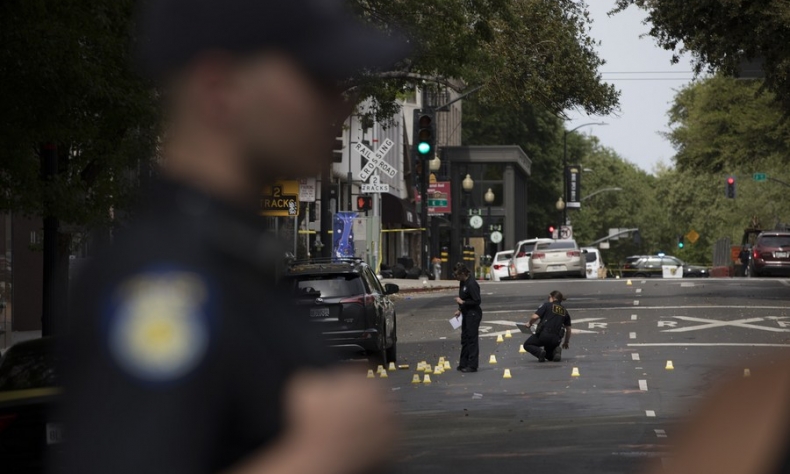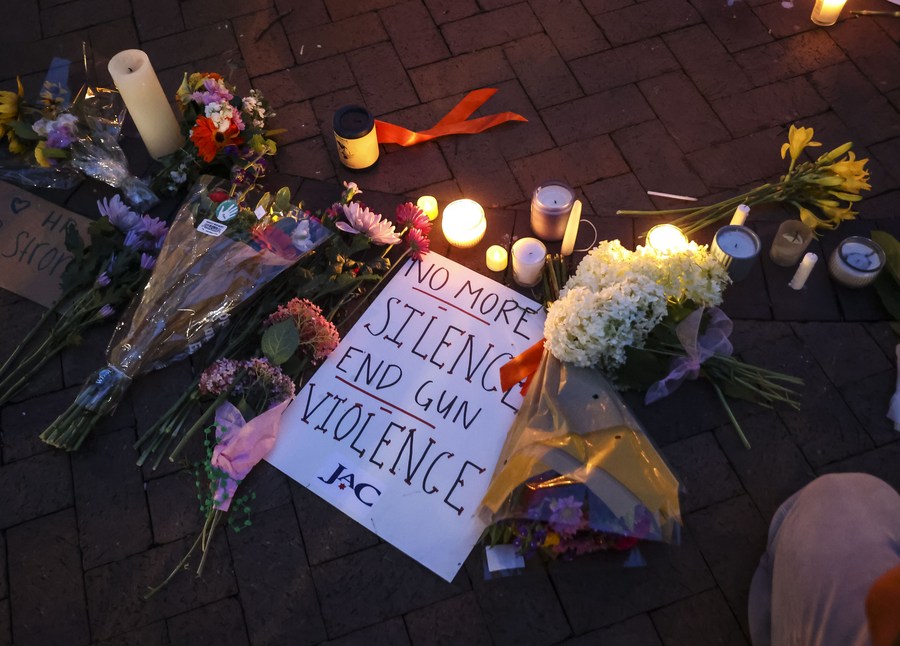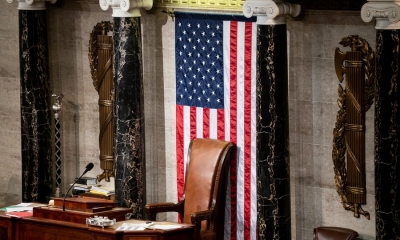The Anachronism of the Second Amendment

Such a culture of mass shootings shows the inability of the U.S. government to secure the welfare, best interests, and security of its own people, which subsequently pours scorn on its claim to be a defender and champion of human rights throughout the world.
The weekend before Halloween saw a spate of deadly mass shootings in several U.S. cities that left at least 11 people dead and 76 others injured, according to data from the nonprofit Gun Violence Archive.
The United States has become the country with the highest number of mass shootings in the world, and the problem is getting worse. But why are they on the rise in the country?
The United States is a country that was premised on a group of wealthy landowners, who, by rejecting government interference in their business interests, staged a war of independence against their colonial masters and became an independent country. This “land owner” mentality is what ultimately defined the early socio-economic demographic of the United States, which, at the expense of native peoples, represented an opportunity for travelers to become wealthy and claim their own lands in the vast, abundant frontier of North America. With this, one of the earliest amendments to the Constitution of the United States was established in 1791, stating: “A well regulated Militia, being necessary to the security of a free State, the right of the people to keep and bear Arms, shall not be infringed.”
This amendment, known as the “Second Amendment,” affirms that Americans have a right to have their own weapons to defend themselves. The logic of this amendment made sense in the early political landscape of the United States, defined by land ownership, as well as the ideals of independence and autonomy from government. It is on this premise that guns have evolved to become an integral part of American identity and a symbol of freedom.

However, in the modern era, the proliferation of firearms is incompatible with urban life and has led to mass shootings time and time again in the United States. Nowadays, the prevalence of firearms allows an aggrieved individual to pick up a gun, usually an automatic weapon, and unleash his anger and malice on the world by indiscriminately murdering scores of innocent people. These shootings have become so frequent that they are accepted as part of everyday life. In the latest incident, a former U.S. soldier called Robert Card, living in Lewiston, Maine, took an automatic weapon and killed 18 people before escaping and claiming his own life.
Many in the United States understand the urgent need to reform gun laws to prevent such tragedies from happening over and over, yet the structure of the American political system makes it impossible.
First of all, it is near impossible to change the Constitution and alter the Second Amendment. The U.S. Constitution, in order to protect the perceived integrity of the political system, is deliberately made difficult to change, requiring a supermajority in both houses of Congress and 38 out of 50 states to agree. This requires bipartisanship, which, in the current climate of extreme U.S. partisan division, is nigh impossible to agree on domestic issues, not least one where Republicans appeal to their core, rural constituencies by pledging to defend gun ownership.
Similarly, political lobbies, such as the National Rifle Association (NRA), backed by the firearms industry, seek to blockade, change, and make their donations to Republican politicians conditional on backing their agenda. This creates a political stalemate and gridlock that even the frequent repetition of such mass shooting tragedies is not able to break. This creates a culture of “thoughts and prayers” regarding such events, becoming the subject of sarcasm and satire. Ultimately, such a culture of mass shootings shows the inability of the U.S. government to secure the welfare, best interests, and security of its own people, which subsequently pours scorn on its claim to be a defender and champion of human rights throughout the world. After all, what is liberty if this liberty cannot secure your right not to be shot by another? And what are human rights if they cannot provide a right to avoid being indiscriminately shot by mass shooters?
 Facebook
Facebook
 Twitter
Twitter
 Linkedin
Linkedin
 Google +
Google +







